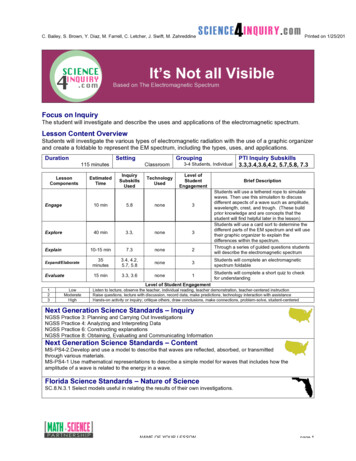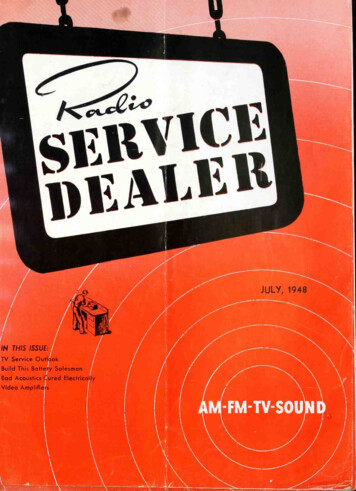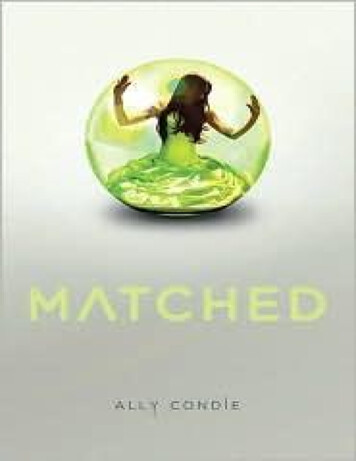
Transcription
MatchedAlly CondieDutton Juvenile (2010)Tags: Social Issues, Love & Romance, Juvenile Fiction, Fantasy & Magic, Fiction, Fantasy,General, Marriage, Manga, Dystopias, Comics & Graphic NovelsAmazon.com ReviewMatched, the Society Officials have determined optimal outcomes for all aspects of daily life, thereby removing the "burden" of choice. WhenCassia's best friend is identified as her ideal marriage Match it confirms her belief that Society knows best, until she plugs in her Match microchipand a different boy’s face flashes on the screen. This improbable mistake sets Cassia on a dangerous path to the unthinkable—rebelling againstthe predetermined life Society has in store for her. As author Ally Condie’s unique dystopian Society takes chilling measures to maintain the statusquo, Matched reminds readers that freedom of choice is precious, and not without sacrifice.—Seira WilsonAmazon Exclusive: Author Q&A; with Ally CondieQ: What inspired you to write Matched?A: Matched was inspired by several experiences—specific ones, like a conversation with my husband and chaperoning a high school prom—andgeneral ones, like falling in love and becoming a parent.Q: How do you think Matched differs from other dystopian novels?A: I think it’s different in that it’s perhaps less action-oriented and more introspective. This is really the story of one girl, Cassia, learning to choose.Q: The cover for Matched is so eye-catching and mysterious. What does the image represent to you?A: I cannot imagine a more perfect cover for this book. To me, the image is a clear representation of Cassia, the main character, and the way sheis trapped in her world. It’s kind of a lovely world—the bubble is beautiful—but it’s confining nonetheless. And, of course, the color green is veryimportant to the book. I’m just so thrilled about this cover. Theresa Evangelista, the designer, and Samantha Aide, the photographer and model, areincredibly talented.Q: In Matched, each member of the Society is not only assigned a spouse, they’re also assigned a job, and Cassia, your maincharacter, is a data sorter. If you lived in the Society, what job do you think you’d have?A: I would definitely not be a data sorter. I am terrible with numbers and patterns. I think I would probably be a teacher or instructor. Or maybe one ofthe people did a mundane task, like dishwashing. I have a feeling that I wouldn’t fare very well in the Society.Q: Dylan Thomas’ classic poem, “Do Not Go Gentle,” is part of a theme that you’ve woven throughout Matched. Do you rememberwhen you first came across this poem? What made you decide to use it in your novel?A: I don’t remember when I first read this poem, which is pretty embarrassing. But I do remember the first time I heard a recording of the authorreading it. I remember feeling almost reverent, and paying close attention to how he said the words and went through the lines. This poem came tomind almost immediately when I started writing the book. It’s probably the most universal poem I’ve ever encountered. The first line alone resonatesimmediately with almost everyone.Q: What do you like about writing for teenagers?A: Everything. I like talking with teenagers themselves about books. I like trying to capture the teenage voice. And I like writing about teenagersbecause they have SO MUCH happening in their lives, and they are passionate about those things.Q: What were some of the books you loved as a teen? Did any of these books influence Matched at all?A: I loved (and still do) Anne Tyler and Wallace Stegner. I remember being introduced to those authors in ninth grade and being floored by thebeauty of their writing. I also loved anything by Agatha Christie. I think these books did influence me—not in any concrete, specific way, but in that Iwanted to write a story about a character worth caring about even though/because of the fact that she is flawed and human.Q: What would you like your readers to take away from the experience of reading Matched?A: I hope they can take away whatever they need from the story. I hope there is something there for a reader—whether it’s relating to a character orreading a scene that feels true or anything else.Q: Will there be more books featuring Cassia, or set in the world of Matched?A: Yes! There will be two more books in the Matched trilogy.From“Do not go gentle into that good night.” Cassia’s feelings of security disintegrate after her grandfather hands her a slip of paper just before hisscheduled death at age 80. Not only does she now possess an illegal poem, but she also has a lingering interest in the boy who fleetingly appearedon her viewscreen, the one who wasn’t her match, the man she will eventually marry. What’s worse, she knows him—his name is Ky, and he is an
orphan from the Outer Provinces. How could she love him as much as Xander, her match and best friend since childhood? The stunning clarity andattention to detail in Condie’s Big Brother–like world is a feat. Some readers might find the Society to be a close cousin of Lois Lowry’s dystopianfuture in The Giver (1993), with carefully chosen work placements, constant monitoring, and pills for regulating emotional extremes. However, theauthor just as easily tears this world apart while deftly exploring the individual cost of societal perfection and the sacrifices inherent in freedom ofchoice. Grades 9-12. —Courtney Jones
1
Table of ContentsTitle PageCopyright PageDedicationCHAPTER 1CHAPTER 2CHAPTER 3CHAPTER 4CHAPTER 5CHAPTER 6CHAPTER 7CHAPTER 8CHAPTER 9CHAPTER 10CHAPTER 11CHAPTER 12CHAPTER 13CHAPTER 14CHAPTER 15CHAPTER 16CHAPTER 17CHAPTER 18CHAPTER 19CHAPTER 20CHAPTER 21CHAPTER 22CHAPTER 23CHAPTER 24CHAPTER 25CHAPTER 26CHAPTER 27CHAPTER 28CHAPTER 29CHAPTER 30CHAPTER 31CHAPTER 32AcknowledgementsALLY CONDIE
DUTTON BOOKSA member of Penguin Group (USA) Inc.Published by the Penguin GroupPenguin Group (USA) Inc., 375 Hudson Street, New York, New York 10014, U.S.A. Penguin Group(Canada), 90 Eglinton Avenue East, Suite 700, Toronto, Ontario M4P 2Y3, Canada(a division of Pearson Penguin Canada Inc.) Penguin Books Ltd, 80 Strand, London WC2R 0RL,England Penguin Ireland, 25 St Stephen’s Green, Dublin 2, Ireland (a division of Penguin Books Ltd) Penguin Group (Australia), 250 Camberwell Road, Camberwell, Victoria 3124, Australia (a division ofPearson Australia Group Pty Ltd) Penguin Books India Pvt Ltd,11 Community Centre, Panchsheel Park, New Delhi—110 017, India Penguin Group (NZ),67 Apollo Drive, Rosedale, North Shore 0632, New Zealand (a division of PearsonNew Zealand Ltd.) Penguin Books (South Africa) (Pty) Ltd, 24 Sturdee Avenue,Rosebank, Johannesburg 2196, South AfricaPenguin Books Ltd, Registered Offices: 80 Strand, London WC2R 0RL, EnglandThis book is a work of fiction.Names, characters, places, and incidents are eitherthe product of the author’s imagination or are used fictitiously,and any resemblance to actual persons, living or dead,business establishments, events, or locales is entirely coincidental.Copyright (c) 2010 by Allyson Braithwaite CondieAll rights reserved.No part of this publication may be reproduced or transmitted in any formor by any means, electronic or mechanical, including photocopying, recording,or any information storage and retrieval system now known or to be invented,without permission in writing from the publisher, except by a reviewerwho wishes to quote brief passages in connection with a reviewwritten for inclusion in a magazine, newspaper, or broadcast.The publisher does not have any control over and does not assumeany responsibility for author or third-party websites or their content.“Poem in October”—By Dylan Thomas, from THE POEMS OF DYLAN THOMAS,copyright (c) 1945 by The Trustees for the Copyrights of Dylan Thomas, first published in POETRY.“Do Not Go Gentle Into That Good Night”—By Dylan Thomas,from THE POEMS OF DYLAN THOMAS, copyright (c) 1952 by Dylan Thomas.CIP Data is available.Published in the United States by Dutton Books,a member of Penguin Group (USA) Inc.345 Hudson Street, New York, New York 10014www.penguin.com/youngreaderseISBN : 978-1-101-44544-0http://us.penguingroup.com
For Scott, who always believes
CHAPTER 1Now that I’ve found the way to fly, which direction should I go into the night? My wings aren’t white or feathered; they’re green, made of green silk,which shudders in the wind and bends when I move—first in a circle, then in a line, finally in a shape of my own invention. The black behind medoesn’t worry me; neither do the stars ahead.I smile at myself, at the foolishness of my imagination. People cannot fly, though before the Society, there were myths about those who could. Isaw a painting of them once. White wings, blue sky, gold circles above their heads, eyes turned up in surprise as though they couldn’t believe whatthe artist had painted them doing, couldn’t believe that their feet didn’t touch the ground.Those stories weren’t true. I know that. But tonight, it’s easy to forget. The air train glides through the starry night so smoothly and my heartpounds so quickly that it feels as though I could soar into the sky at any moment.“What are you smiling about?” Xander wonders as I smooth the folds of my green silk dress down neat.“Everything,” I tell him, and it’s true. I’ve waited so long for this: for my Match Banquet. Where I’ll see, for the first time, the face of the boy who willbe my Match. It will be the first time I hear his name.I can’t wait. As quickly as the air train moves, it still isn’t fast enough. It hushes through the night, its sound a background for the low rain of ourparents’ voices, the lightning-quick beats of my heart.Perhaps Xander can hear my heart pounding, too, because he asks, “Are you nervous?” In the seat next to him, Xander’s older brother begins totell my mother the story of his Match Banquet. It won’t be long now until Xander and I have our own stories to tell.“No,” I say. But Xander’s my best friend. He knows me too well.“You lie,” he teases. “You are nervous.”“Aren’t you?”“Not me. I’m ready.” He says it without hesitation, and I believe him. Xander is the kind of person who is sure about what he wants.“It doesn’t matter if you’re nervous, Cassia,” he says, gentle now. “Almost ninety-three percent of those attending their Match Banquet exhibitsome signs of nervousness.”“Did you memorize all of the official Matching material?”“Almost,” Xander says, grinning. He holds his hands out as if to say, What did you expect?The gesture makes me laugh, and besides, I memorized all of the material, too. It’s easy to do when you read it so many times, when the decisionis so important. “So you’re in the minority,” I say. “The seven percent who don’t show any nerves at all.”“Of course,” he agrees.“How could you tell I was nervous?”“Because you keep opening and closing that.” Xander points to the golden object in my hands. “I didn’t know you had an artifact.” A few treasuresfrom the past float around among us. Though citizens of the Society are allowed one artifact each, they are hard to come by. Unless you hadancestors who took care to pass things along through the years.“I didn’t, until a few hours ago,” I tell him. “Grandfather gave it to me for my birthday. It belonged to his mother.”“What’s it called?” Xander asks.“A compact,” I say. I like the name very much. Compact means small. I am small. I also like the way it sounds when you say it: com-pact. Sayingthe word makes a sound like the one the artifact itself makes when it snaps shut.“What do the initials and numbers mean?”“I’m not sure.” I run my finger across the letters ACM and the numbers 1940 carved across the golden surface. “But look,” I tell him, popping thecompact open to show him the inside: a little mirror, made of real glass, and a small hollow where the original owner once stored powder for herface, according to Grandfather. Now, I use it to hold the three emergency tablets that everyone carries—one green, one blue, one red.“That’s convenient,” Xander says. He stretches out his arms in front of him and I notice that he has an artifact, too—a pair of shiny platinum cufflinks. “My father lent me these, but you can’t put anything in them. They’re completely useless.”“They look nice, though.” My gaze travels up to Xander’s face, to his bright blue eyes and blond hair above his dark suit and white shirt. He’salways been handsome, even when we were little, but I’ve never seen him dressed up like this. Boys don’t have as much leeway in choosing clothesas girls do. One suit looks much like another. Still, they get to select the color of their shirts and cravats, and the quality of the material is much finerthan the material used for plainclothes. “You look nice.” The girl who finds out that he’s her Match will be thrilled.“Nice?” Xander says, lifting his eyebrows. “That’s all?”“Xander,” his mother says next to him, amusement mingled with reproach in her voice.”You look beautiful,” Xander tells me, and I flush a little even though I’ve known Xander all my life. I feel beautiful, in this dress: ice green, floating,full-skirted. The unaccustomed smoothness of silk against my skin makes me feel lithe and graceful.Next to me, my mother and father each draw a breath as City Hall comes into view, lit up white and blue and sparkling with the special occasionlights that indicate a celebration is taking place. I can’t see the marble stairs in front of the Hall yet, but I know that they will be polished and shining.All my life I have waited to walk up those clean marble steps and through the doors of the Hall, a building I have seen from a distance but neverentered.I want to open the compact and check in the mirror to make sure I look my best. But I don’t want to seem vain, so I sneak a glance at my face in its
surface instead.The rounded lid of the compact distorts my features a little, but it’s still me. My green eyes. My coppery-brown hair, which looks more golden inthe compact than it does in real life. My straight small nose. My chin with a trace of a dimple like my grandfather’s. All the outward characteristicsthat make me Cassia Maria Reyes, seventeen years old exactly.I turn the compact over in my hands, looking at how perfectly the two sides fit together. My Match is already coming together just as neatly,beginning with the fact that I am here tonight. Since my birthday falls on the fifteenth, the day the Banquet is held each month, I’d always hoped that Imight be Matched on my actual birthday—but I knew it might not happen. You can be called up for your Banquet anytime during the year after youturn seventeen. When the notification came across the port two weeks ago that I would, indeed, be Matched on the day of my birthday, I couldalmost hear the clean snap of the pieces fitting into place, exactly as I’ve dreamed for so long.Because although I haven’t even had to wait a full day for my Match, in some ways I have waited all my life.“Cassia,” my mother says, smiling at me. I blink and look up, startled. My parents stand up, ready to disembark. Xander stands, too, andstraightens his sleeves. I hear him take a deep breath, and I smile to myself. Maybe he is a little nervous after all.“Here we go,” he says to me. His smile is so kind and good; I’m glad we were called up the same month. We’ve shared so much of childhood, itseems we should share the end of it, too.I smile back at him and give him the best greeting we have in the Society. “I wish you optimal results,” I tell Xander.“You too, Cassia,” he says.As we step off the air train and walk toward City Hall, my parents each link an arm through mine. I am surrounded, as I always have been, by theirlove.It is only the three of us tonight. My brother, Bram, can’t come to the Match Banquet because he is under seventeen, too young to attend. The firstone you attend is always your own. I, however, will be able to attend Bram’s banquet because I am the older sibling. I smile to myself, wonderingwhat Bram’s Match will be like. In seven years I will find out.But tonight is my night.It is easy to identify those of us being Matched; not only are we younger than all of the others, but we also float along in beautiful dresses andtailored suits while our parents and older siblings walk around in plainclothes, a background against which we bloom. The City Officials smileproudly at us, and my heart swells as we enter the Rotunda.In addition to Xander, who waves good-bye to me as he crosses the room to his seating area, I see another girl I know named Lea. She pickedthe bright red dress. It is a good choice for her, because she is beautiful enough that standing out works in her favor. She looks worried, however,and she keeps twisting her artifact, a jeweled red bracelet. I am a little surprised to see Lea there. I would have picked her for a Single.“Look at this china,” my father says as we find our place at the Banquet tables. “It reminds me of the Wedgwood pieces we found last year ”My mother looks at me and rolls her eyes in amusement. Even at the Match Banquet, my father can’t stop himself from noticing these things. Myfather spends months working in old neighborhoods that are being restored and turned into new Boroughs for public use. He sifts through the relicsof a society that is not as far in the past as it seems. Right now, for example, he is working on a particularly interesting Restoration project: an oldlibrary. He sorts out the things the Society has marked as valuable from the things that are not.But then I have to laugh because my mother can’t help but comment on the flowers, since they fall in her area of expertise as an Arboretumworker. “Oh, Cassia! Look at the centerpieces. Lilies.” She squeezes my hand.“Please be seated,” an Official tells us from the podium. “Dinner is about to be served.”It’s almost comical how quickly we all take our seats. Because we might admire the china and the flowers, and we might be here for our Matches,but we also can’t wait to taste the food.“They say this dinner is always wasted on the Matchees,” a jovial-looking man sitting across from us says, smiling around our table. “So excitedthey can’t eat a bite.” And it’s true; one of the girls sitting farther down the table, wearing a pink dress, stares at her plate, touching nothing.I don’t seem to have this problem, however. Though I don’t gorge myself, I can eat some of everything—the roasted vegetables, the savory meat,the crisp greens, and creamy cheese. The warm light bread. The meal seems like a dance, as though this is a ball as well as a banquet. Thewaiters slide the plates in front of us with graceful hands; the food, wearing herbs and garnishes, is as dressed up as we are. We lift the whitenapkins, the silver forks, the shining crystal goblets as if in time to music.My father smiles happily as a server sets a piece of chocolate cake with fresh cream before him at the end of the meal. “Wonderful,” he whispers,so softly that only my mother and I can hear him.My mother laughs a little at him, teasing him, and he reaches for her hand.I understand his enthusiasm when I take a bite of the cake, which is rich but not overwhelming, deep and dark and flavorful. It is the best thing Ihave eaten since the traditional dinner at Winter Holiday, months ago. I wish Bram could have some cake, and for a minute I think about savingsome of mine for him. But there is no way to take it back to him. It wouldn’t fit in my compact. It would be bad form to hide it away in my mother’spurse even if she would agree, and she won’t. My mother doesn’t break the rules.I can’t save it for later. It is now, or never.I have just popped the last bite in my mouth when the announcer says, “We are ready to announce the Matches.”I swallow in surprise, and for a second, I feel an unexpected surge of anger: I didn’t get to savor my last bite of cake.
“Lea Abbey.”Lea twists her bracelet furiously as she stands, waiting to see the face flash on the screen. She is careful to hold her hands low, though, so thatthe boy seeing her in another City Hall somewhere will only see the beautiful blond girl and not her worried hands, twisting and turning that bracelet.It is strange how we hold on to the pieces of the past while we wait for our futures.There is a system, of course, to the Matching. In City Halls across the country, all filled with people, the Matches are announced in alphabeticalorder according to the girls’ last names. I feel slightly sorry for the boys, who have no idea when their names will be called, when they must stand forgirls in other City Halls to receive them as Matches. Since my last name is Reyes, I will be somewhere at the end of the middle. The beginning ofthe end.The screen flashes with the face of a boy, blond and handsome. He smiles as he sees Lea’s face on the screen where he is, and she smiles, too.“Joseph Peterson,” the announcer says. “Lea Abbey, you have been matched with Joseph Peterson.”The hostess presiding over the Banquet brings Lea a small silver box; the same thing happens to Joseph Peterson on the screen. When Lea sitsdown, she looks at the silver box longingly, as though she wishes she could open it right away. I don’t blame her. Inside the box is a microcard withbackground information about her Match. We all receive them. Later, the boxes will be used to hold the rings for the Marriage Contract.The screen flashes back to the default picture: a boy and a girl, smiling at each other, with glimmering lights and a white-coated Official in thebackground. Although the Society times the Matching to be as efficient as possible, there are still moments when the screen goes back to thispicture, which means that we all wait while something happens somewhere else. It’s so complicated—the Matching—and I am again reminded ofthe intricate steps of the dances they used to do long ago. This dance, however, is one that the Society alone can choreograph now.The picture shimmers away.The announcer calls another name; another girl stands up.Soon, more and more people at the Banquet have little silver boxes. Some people set them on the white tablecloths in front of them, but mosthold the boxes carefully, unwilling to let their futures out of their hands so soon after receiving them.I don’t see any other girls wearing the green dress. I don’t mind. I like the idea that, for one night, I don’t look like everyone else.I wait, holding my compact in one hand and my mother’s hand in the other. Her palm feels sweaty. For the first time, I realize that she and myfather are nervous, too.“Cassia Maria Reyes.”It is my turn.I stand up, letting go of my mother’s hand, and turn toward the screen. I feel my heart pounding and I am tempted to twist my hands the way Leadid, but I hold perfectly still with my chin up and my eyes on the screen. I watch and wait, determined that the girl my Match will see on the screen inhis City Hall somewhere out there in Society will be poised and calm and lovely, the very best image of Cassia Maria Reyes that I can present.But nothing happens.I stand and look at the screen, and, as the seconds go by, it is all I can do to stay still, all I can do to keep smiling. Whispers start around me. Outof the corner of my eye, I see my mother move her hand as if to take mine again, but then she pulls it back.A girl in a green dress stands waiting, her heart pounding. Me.The screen is dark, and it stays dark.That can only mean one thing.
CHAPTER 2The whispers rise soft around me like birds beating their wings under the dome of City Hall. “Your Match is here this evening,” the hostess says,smiling. The people around me smile as well, and their murmurs become louder. Our Society is so vast, our Cities so many, that the odds of yourperfect Match being someone in your own City are minuscule. It’s been many years since such a thing happened here.These thoughts tumble in my mind, and I close my eyes briefly as I realize what this means, not in abstract, but for me, the girl in the green dress. Imight know my Match. He might be someone who goes to the same Second School that I do, someone I see every day, someone—“Xander Thomas Carrow.”At his table, Xander stands up. A sea of watching faces and white tablecloths, of glinting crystal glasses and shining silver boxes stretchesbetween us.I can’t believe it.This is a dream. People turn their eyes on me and on the handsome boy in the dark suit and blue cravat. It doesn’t feel real until Xander smiles atme. I think, I know that smile, and suddenly I’m smiling, too, and the rush of applause and smell of the lilies fully convince me that this is actuallyhappening. Dreams don’t smell or sound as strong as this. I break protocol a bit to give Xander a tiny wave, and his smile widens.The hostess says, “You may take your seats.” She sounds glad that we are so happy; of course, we should be. We are each other’s best Match,after all.When she brings me the silver box, I hold it carefully. But I already know much of what is inside. Not only do Xander and I go to the same school,we also live on the same street; we’ve been best friends for as long as I can remember. I don’t need the microcard to show me pictures of Xanderas a child because I have plenty of them in my mind. I don’t need to download a list of favorites to memorize because I already know them. Favoritecolor: green. Favorite leisure activity: swimming. Favorite recreation activity: games.“Congratulations, Cassia,” my father whispers to me, his expression relieved. My mother says nothing, but she beams with delight and embracesme tightly. Behind her, another girl stands up, watching the screen.The man sitting next to my father whispers, “What a piece of luck for your family. You don’t have to trust her future to someone you know nothingabout.”I’m surprised by the unhappy edge to his tone; the way his comment seems to be right on the verge of insubordination. His daughter, the nervousone wearing the pink dress, hears it, too; she looks uncomfortable and shifts slightly in her seat. I don’t recognize her. She must go to one of theother Second Schools in our City.I sneak another glance at Xander, but there are too many people in my way and I can’t see him. Other girls take their turns standing up. Thescreen lights up for each of them. No one else has a dark screen. I am the only one.Before we leave, the hostess of the Match Banquet asks Xander and me and our families to step aside and speak with her. “This is an unusualsituation,” she says, but she corrects herself immediately. “Not unusual. Excuse me. It is merely uncommon.” She smiles at both of us. “Since youalready know each other, things will proceed differently for you. You will know much of the initial information about each other.” She gestures at oursilver boxes. “There are a few new courtship guidelines included on your microcards, so you should familiarize yourselves with those when you havean opportunity.”“We’ll read them tonight,” Xander promises sincerely. I try to keep from rolling my eyes in amusement because he sounds exactly the way hedoes when a teacher gives him a learning assignment. He’ll read the new guidelines and memorize them, as he read and memorized the officialMatching material. And then I flush again, as a paragraph from that material flashes across my mind:If you choose to be Matched, your Marriage Contract will take place when you are twenty-one. Studies have shown that the fertility of both menand women peaks at the age of twenty-four. The Matching System has been constructed to allow those who Match to have their children nearthis age—providing for the highest likelihood of healthy offspring.Xander and I will share a Marriage Contract. We will have children together.I don’t have to spend the next few years learning everything about him because I already know him, almost as well as I know myself.The tiny feeling of loss deep within my heart surprises me. My peers will spend the next few days swooning over pictures of their Matches,bragging about them during meal hour at school, waiting for more and more bits of information to be revealed. Anticipating their first meeting, theirsecond meeting, and so on. That mystery does not exist for Xander and me. I won’t wonder what he is like or daydream about our first meeting.But then Xander looks at me and asks, “What are you thinking about?” and I answer, “That we are very lucky,” and I mean it. There is still much todiscover. Until now, I have only known Xander as a friend. Now he is my Match.The hostess corrects me gently. “Not lucky, Cassia. There is no luck in the Society.”I nod. Of course. I should know better than to use such an archaic, inaccurate term. There’s only probability now. How likely something is to occur,or how unlikely.The hostess speaks again. “It has been a busy evening, and it’s getting late. You can read the courtship guidelines later, another day. There’splenty of time.”She’s right. That’s what the Society has given us: time. We live longer and better than any other citizens in the history of the world. And it’s thanksin large part to the Matching System, which produces physically and emotionally healthy offspring.And I’m a part of it all.
My parents and the Carrows can’t stop exclaiming over how wonderful this all is, and as we walk down the steps of City Hall together, Xanderleans over and says, “You’d think they’d arranged everything themselves.”“I can’t believe it,” I say, and I feel opulent and a little giddy. I can’t believe that this is me, wearing a beautiful green dress, holding gold in onehand and silver in the other, walking next to my best friend. My Match.“I can,” Xander says, teasing me. “In fact, I knew all along. That’s why I wasn’t nervous.”I tease him back. “I knew, too. That’s why I was.”We’re laughing so much that when the air train pulls up neither of us notice for a moment, and then there is a brief moment of awkwardness asXander holds out his hand to help me climb aboard. “Here,” he says, hi
Matched Ally Condie Dutton Juvenile (2010) Tags: Social Issues, Love & Romance, Juvenile Fiction, Fantasy & Magic, Fiction, Fantasy, General, Marriage, Manga, Dystopias, Comics & Graphic Novels Amazon.com Review Matched, the Society Officials have determined optimal outcomes for all aspects of daily life, thereby removing the "burden" of choice .
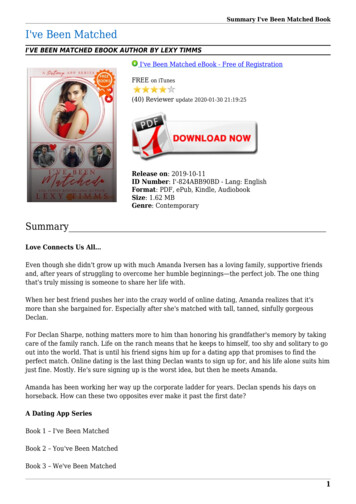
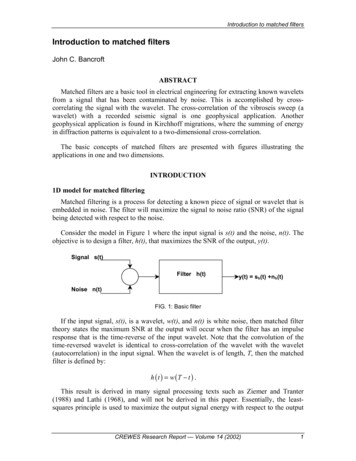
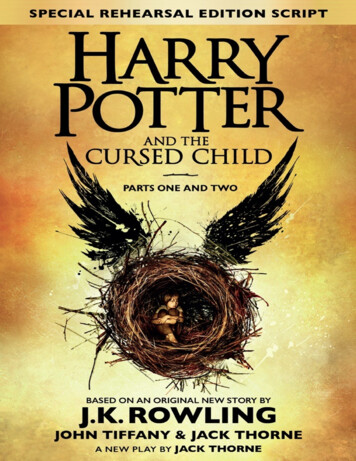
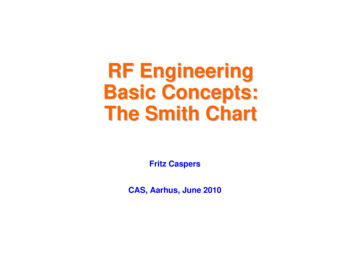

![OPTN Policies Effective as of April 28 2022 [9.9A]](/img/32/optn-policies.jpg)

